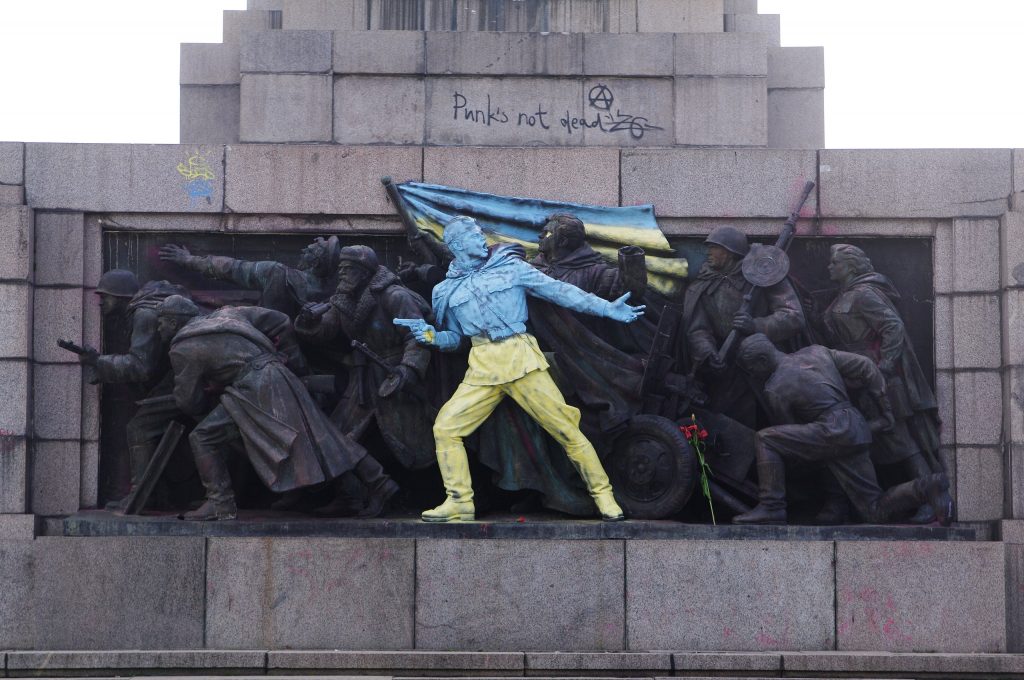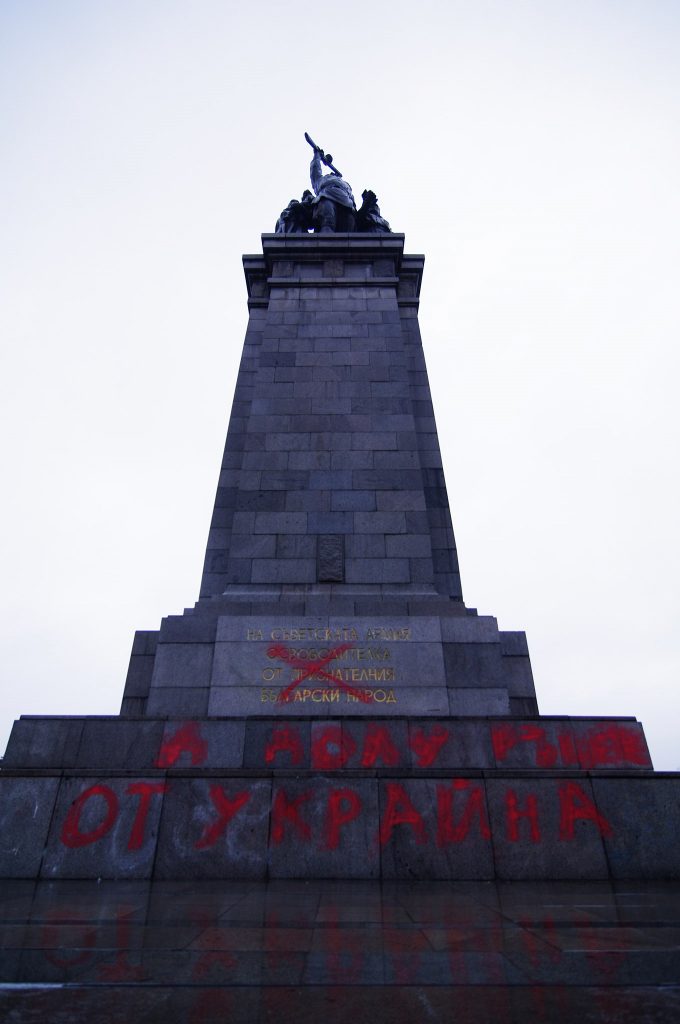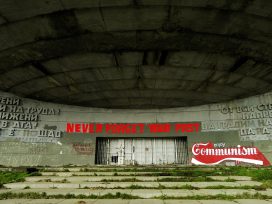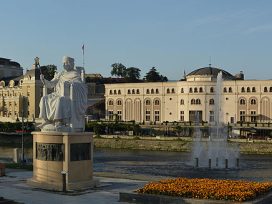The Ukraine war has reverberated powerfully in Bulgaria, bringing to light brewing domestic fissures and long-standing foreign policy uncertainties. The standoff between political actors over whether Sofia should provide military aid to Ukraine; debate about the maintenance of a neutral stance in the conflict; and Russia’s halting of gas supplies to Bulgaria have strained the still young four-party government coalition and caused further polarization between pro-Russian and Russia-critical sections of society.
These tensions follow an established pattern, however. Taking a longer-term, comparative perspective that accounts for the distinctive features of Sofia’s post-1989 foreign policy transformation can illuminate the underpinnings of contemporary Bulgarian dilemmas.
After the collapse of communism and end of bipolarity, different patterns of Europeanization began to emerge throughout Central and Eastern Europe. While some countries (e.g. Poland) managed to ‘return’ to the European fold quickly, others (such as Bulgaria) equivocated. Still others – above all Russia – never managed to find their place in Europe.
As I argue in my book Constructing the Limits of Europe, accounts of democratic transition that held that ‘legacies of the past’ could be overcome through the implementation of a liberal democratic, free-market blueprint for reform turned out to be overtly institutionalist-rationalist. They failed to predict that patterns of transformation of foreign policy in CEE after 1989 would be shaped largely by identity. Interactive processes of identification between CEE Selves and the western (European) Other have defined the borders of the Euro-Atlantic community.
The closer the boundaries of similarity and recognition, the more Self and Other have been united in a shared standard of mutual belonging. These identification processes have yielded what the book terms ‘thick’, ‘ambivalent’ and ‘thin’ forms of Europeanization, exhibited by Poland, Bulgaria and Russia respectively. A number of key elements of Bulgaria’s national identity have informed its ambivalence.

The Monument to the Soviet Army, Sofia, 2014. Image: Luchesar V. Iliev; source: Wikimedia Commons
The origins of Bulgaria’s split identity
Historically, western Europe and Russia have represented significant Others in the construction of Bulgarian identity. Western Europe has been perceived both as a utopian, superior form of social, political and economic organization to be imitated, and as a hostile, exclusive and distant entity that does not appreciate the states on its periphery. Bulgaria’s ideational exclusion from European civilization is conveyed through the concept of the ‘Balkans’, synonymous with backwardness, perpetual conflict, tribalism and resistance to modernization.
After being incorporated into the Ottoman Empire, Bulgaria remained on the periphery of the great social, political and economic transformations taking hold in western Europe. The Reformation, the Enlightenment, the Industrial Revolution and the French Revolution contributed to the development of liberalism, the rule of law and the free market as core values of ‘Europeanness’. Superficially understood, these ‘imported’ values never became an organic part of Bulgarian national identity. The Bulgarians emulated them in the process of catching up with the West, but did not experience them as part of an indigenous historical development.
Russia, on the other hand, has played an important role in Bulgarian cultural sensibilities and emotional attachments. Religious, ethnic and linguistic similarities, together with historical gratitude (Bulgaria’s liberation from the Ottoman Empire depended on Russian military and diplomatic activities), meant that Russia was central to the restoration of modern Bulgarian statehood. In the popular consciousness, Moscow is accorded the role of ‘liberator’ and a protector, not just during the Ottoman period, but above all the Cold War. For this reason, NATO was not immediately recognized as a guarantor of security after 1989.
Traditional aspects of Bulgaria’s security culture have further exacerbated East-West dichotomies. The country’s central location on the Balkan peninsula is a vital element in Bulgarian self-awareness. The country sees itself as the geostrategic and civilizational crossroads between Europe and Asia. Perceptions of territoriality had led to the narrative of victimization by the great powers (the carving up of Bulgaria at the Congress of Berlin in 1878), coupled with the memory of betrayal (by Bulgaria’s neighbouring allies after the First Balkan War) and defeat (in the Second Balkan War and two World Wars). These interpretations of history not only shift the blame for foreign policy failures to external ‘culprits’, but also lead to passivity in international relations, as expressed in Bulgaria’s typically reactive foreign policy.
The ambivalence of Bulgaria’s identity has been manifested in the transformation processes since 1989. Nonetheless, it has not been so strong as to prevent a gradual movement towards European integration and (somewhat superficial) normative compatibility, helped along by European diplomatic and economic support and internal consensus over a pro-European foreign policy direction.

The Monument to the Soviet Army, Sofia, with the inscription ‘Hands off Ukraine’. 2 March 2014. Image: Luchesar V. Iliev; source: Wikimedia Commons
Hesitant Europeanization
In the 1990s, Sofia’s ambivalent Europeanization was characterized by liminal soul-searching as to the country’s proper place in Europe, fuelled by virulent opposition between ‘anti-communists’ and ‘former communists’. The uncertainty was only overcome through the gradual achievement of domestic political consensus towards the end of the decade.
Similarly, Europe’s and America’s own ambivalence towards Bulgaria meant that the West did not immediately deploy its normative authority and power in bringing the country closer into its orbit. The West’s own hesitancy towards Bulgaria’s integration in the Euro-Atlantic space was complemented and informed by Sofia’s uncertain ideational allegiances. It took the shock of the 1996–1997 financial and economic crisis in Bulgaria (which delegitimized all alternatives to a pro-western path of development) and the strategic reconsiderations following the Kosovo conflict (which led to a watershed in western perceptions about the importance of the Balkans in the European normative and security order) for Self and Other to move closer together.
Still, entering the new millennium, Bulgaria’s place in Europe continued to be uncertain. The diminishing desire for enlargement on the part of the EU and NATO coincided with the emergence of populist parties on the Bulgarian political scene. This hollowed out both the principle and practice of ‘European-ness’, as well as the lingering anti-communist vs. former communist dichotomy of the 1990s.
Since EU and NATO membership perspectives were largely uncontested, entry negotiations were continued. But Sofia’s ‘return to Europe’ was primarily pushed by the EU’s and NATO’s strategic considerations and the Bulgarian political elite’s surface-level Euro-Atlantic consensus. This was based on situational adaptation to European norms rather than deep internal conviction and aspirations to be an active partner of the West.
Ukraine and the revival of ambivalence
Russia’s war on Ukraine has reinforced longstanding divisions between ‘Russophiles’ and ‘Russophobes’ on both the political and societal levels, particularly with respect to the question of the provision of military aid to Kyiv.
Significant foreign policy fault lines have come to the surface among the four parties that form the coalition government. At one end of the attitudinal spectrum, Democratic Bulgaria (DB) has consistently followed a pro-western line. It is critical of Moscow’s authoritarianism, condemns the Kremlin’s military aggression and insists that Bulgaria should send military assistance to Ukraine. At the other end of the spectrum, the Bulgarian Socialist Party (BSP), which traditionally favours close political, economic and cultural ties with Russia. It has criticized the Russian invasion of Ukraine but refuses to back sanctions or military aid for Kyiv.
The biggest partner in the coalition, We Continue the Change, is a newcomer that won the November 2021 parliamentary elections on an anti-corruption platform. Kiril Petkov, the prime minister, is the party’s co-chairman. It draws its support and identity from stances on domestic issues and its business-oriented approach. Taking sides on foreign policy has been less prominent.
In the context of the Ukraine war, the party tried to play a balancing role among the coalition partners, refraining from espousing a decisive position on the question of weapons exports to Kyiv. Yet, following mounting pressure to take a clearer stance and Russia’s halting of gas supplies, We Continue the Change performed a U-turn. On a visit to Ukraine in early May, Petkov declared that providing military aid to Ukraine amounted to a civilizational choice in favour of Europe and democracy.
The fourth partner in the coalition, There is Such a People (ITN), has been relatively evasive about foreign policy. Although the party professes pro-western positions, its electoral platform included calls for maintaining close cultural and economic ties with extra-EU and NATO actors, notably Russia. However, ITN has clearly pronounced itself in favour of military aid to Ukraine.
The parties in opposition have espoused a mix of pro-western and pro-Russian positions. Citizens for European Development of Bulgaria (GERB), which held the reins of power for twelve years, has sent mixed signals in relation to Russia over the years. On the one hand, GERB has been consistently in favour of Bulgaria’s Euro-Atlantic strategic orientation, both in its public stance and in its actions. On the other hand, GERB and its leader, the former prime minister Boyko Borisov, hold pro-Russian positions, particularly in the sphere of energy (gas and nuclear projects) and economic ties (tourism and arms industry). Тhe party took a strong stance in support of weapons exports to Ukraine, likely attempting to benefit from the indecisiveness of the government.
The Movement for Rights and Freedoms (MRF) represents and draws its support primarily from the ethnic Turkish constituency. It has been consistently present on the Bulgarian political scene for the last three decades. Despite the occasional espousal of pro-Russian positions as well as alleged ties with Russian groups and interests, MRF has traditionally portrayed itself as the staunchest supporter of Sofia’s Euro-Atlantic orientation. In the context of the Ukraine war, the MRF has supported weapons exports to Kyiv, albeit in a subdued manner.
Finally, the far-right, pro-Russian party Vazrazhdane (Revival) has lent vociferous support to the Kremlin’s political agenda, actively disseminating pro-Kremlin disinformation in Bulgaria. Vazrazhdane has organized protests condemning the dispatch of weapons to Ukraine and has called for Bulgarian neutrality in the conflict.
Rumen Radev, the president, has opposed weapons exports, opening a growing fissure with the government. Radev has argued that the war in Ukraine could escalate into a European and world war and has criticized Bulgarian politicians who seem ready to take this step. He has distanced the Bulgarian national interest from the act of providing military assistance to Ukraine, suggesting that political figures who back doing so are motivated by vested interests. Assen Vassilev, the deputy prime minister and co-leader of We Continue the Change, has called such opposition to weapons exports as ‘shameful’.
These conflicting stances have been reflected in societal dispositions. Over the years, opinion polls have consistently shown that Bulgarians are among the most pro-Russian people in Europe and worldwide. But while opinion polls between 2020 and 2022 showed approval ratings for Vladimir Putin at around 55%, in the aftermath of the Russian invasion there has been a drastic change. Positive views of Putin have halved, while negative views have more than doubled. This may be short-term, however. Pro-Kremlin disinformation has proliferated exponentially in the Bulgarian (social) media environment; by the second half of March 2022, 42% of Bulgarians expressed the view that the EU’s sanctions on Russia were too harsh.
An age-old Bulgarian balancing act
The perennial debate over ‘balancing’ and ‘neutrality’ in particular has reappeared in connection with the question as to whether Sofia should dispatch weapons to Ukraine. The effort to balance between East and West, which at its extreme morphs into a disposition towards neutrality, is an established pattern in Sofia’s foreign policy. Bulgarian understandings of balancing and neutrality differ from the connotations these concepts have in international relations realist theory and practice. Rather than a strategy pursued by a state or group of states to curb the power of another state, Bulgarian balancing means amalgamating East-West dualities. Neutrality is understood less as a means to assure security through military non-involvement in third-party conflicts, than as a way of diluting a pro-western orientation on the basis of a concealed or explicit pro-Russian bias.
For example, in the 1990s, Bulgarian Socialist Party politicians and their supporters argued that there were alternative courses of action for Sofia than the pro-western one. There was significant support among left-leaning politicians and intellectuals for Bulgaria’s role as a ‘bridge’ between Russia and the West. Behind this position was a mentality of political-economic subordination to the Kremlin inherited from the Soviet period.
The attempt to conduct a foreign policy equidistant to West and East found expression in a distinctive understanding of the term ‘Euro-Atlantic’. Use of the term by BSP officials encompassed the EC/EU and the CSCE/OSCE, but excluded NATO. This was a way of incorporating Russia into trans-Atlantic security arrangements. In practice, socialist-led governments worked towards membership in the European Union while reviving economic and political relations with the CIS states, so that Bulgarians would be ‘finally walking on both feet’.
In the context of the Ukraine war, the effort to ‘balance’ – to the point of implicitly or explicitly calling for neutrality – has been evident in political and societal discourse. In this respect, the official rhetoric of socialist politicians (that occasionally refer to the maintenance of solidarity with Bulgaria’s NATO commitments) overlaps with anti-systemic parties, which promote the most extreme anti-NATO, nationalist positions.
The false equivalence between weapons exports to Ukraine and the involvement of Bulgaria in a direct military confrontation with Russia has been widely discussed. Socialist-leaning circles justify opposition to weapons exports with their adherence to peace and opposition to the prolongation of the war. The leader of the BSP, Kornelia Ninova, threatened to leave the coalition government on these grounds. Closely related to this position is the suggestion that Sofia should take on the role of a mediator between Moscow and Kyiv. Yet, mediation would typically require a degree of equidistance, impartiality and neutrality, rather than the assumption of a clear and decisive position in favour of one party to the dispute. Such a role would conflict with Bulgaria’s status as a member of the EU and NATO, both of which have comprehensively backed and aided Ukraine.
Traditional perceptions of Bulgaria’s ‘smallness’ in international affairs have also played into the attempt to ‘maintain a balance’. Supposed constraints on power serve as a justification for passivity and withdrawal. Foreign minister Teodora Genchovska, for example, has cited Bulgaria’s ‘smallness’ as a reason for not supplying weapons to Ukraine, even though her own party – the ITN – has officially taken a pro-Ukraine position. Here Genchovska was falling back on a default position that seeks to equivocate and prevents the formation of a more determined stance. This is in line with Sofia’s general habit of reactiveness, underwritten by an unwillingness to recognize the possibilities for greater activeness on the part of small states in the framework of international institutions. The fact is that the Bulgarian defence industry can and does supply Ukraine with a range of weapons and ammunition, albeit via private companies.
Explicit calls for Bulgarian neutrality have been coupled with much more extreme and anti-systemic discourse equating military assistance to Ukraine with ‘treason’ and demanding Bulgaria’s demilitarization. The pro-Russian far-right party Vazrazhdane has spearheaded this rhetoric, organizing protests demanding neutrality. The goal is to get rid of ‘national traitors’, to ‘re-establish Bulgarian statehood’, and to do away with ‘foreign occupation’ and foreign interests, all of which are trying to implicate the country in a war that Bulgaria has ostensibly no stake in. A neutral position is thus framed as serving the national interest, while opposing Russian aggression is cast as ‘treason’.
Pro-Russian sections of society (which are not necessarily steered by political forces) have also launched numerous initiatives calling for neutrality. For instance, ‘Bulgaria for Peace and Neutrality’ has launched a petition stating that pacifist goals are best served via non-interference in the Ukraine war and the withdrawal of NATO presence from the country. It is claimed that Sofia’s Alliance membership endangers Bulgaria’s positive relations with Moscow and leads to a loss of sovereignty and geopolitical instability, due to NATO’s alleged incitement of conflicts.
Because of the widespread political and societal attitudinal dispositions and initiatives favouring balance and neutrality, the Bulgarian authorities’ position on sending military assistance to Ukraine has remained hesitant. Two-and-a-half months after the start of the war, prime minster Petkov’s attempt to change the policy of withholding military support to Kyiv resulted in a compromise. On 4 May, the parliament approved the provision of military-technical assistance (repairing Ukrainian military hardware), yet without officially sending weapons. In recognition of Bulgaria’s internal splits, which could have led to a collapse of the coalition government, Ukrainian president Zelensky deposited a letter requesting different types of aid sought from Bulgaria; the supply of weapons was absent from the list.
Doomed to ambivalence?
The persistent ambivalence of Bulgarian foreign policy indicates the difficulty of implementing wholesale change in fundamental beliefs about national identity. A key pathway for transformation can only take place through the leadership of a ‘genuine’ elite acting according to high standards of political morality. Such an elite can turn a crisis into an opportunity for rethinking – rather than falling back into habits that lead to stagnation and error.
We Continue the Change, representing the younger generations (Xs and Millennials), garnered the most votes in the November 2021 Parliamentary elections. The party consists of individuals whose personal and professional biographies are generally not tied to the political, business and intelligence networks of the former communist regime (unlike the majority of established Bulgarian politicians). They are typically western-educated and oriented, entrepreneurial, with liberal social and economic outlooks, individualistic, yet spurred by the aspiration to give back to their community.
However, the potential for change brought by these personal and group traits collides with the weight of systemic factors. First, the traditional ideational standpoints informing the conduct of Bulgarian politics have exerted pressure on the new elite. We Continue the Change has occasionally fallen back on historically established patterns of ambivalence. Second, We Continue the Change received only a partial mandate for reform (with 67 MPs out of a total of 240 Parliamentary seats). The older generations have retained their grip on the levers of power.
Overcoming continuity thus requires moral resolve to pursue, debate and struggle for change. Only then will a new political class emerge in Bulgaria that, in Max Weber’s terms, lives for rather than from politics.








